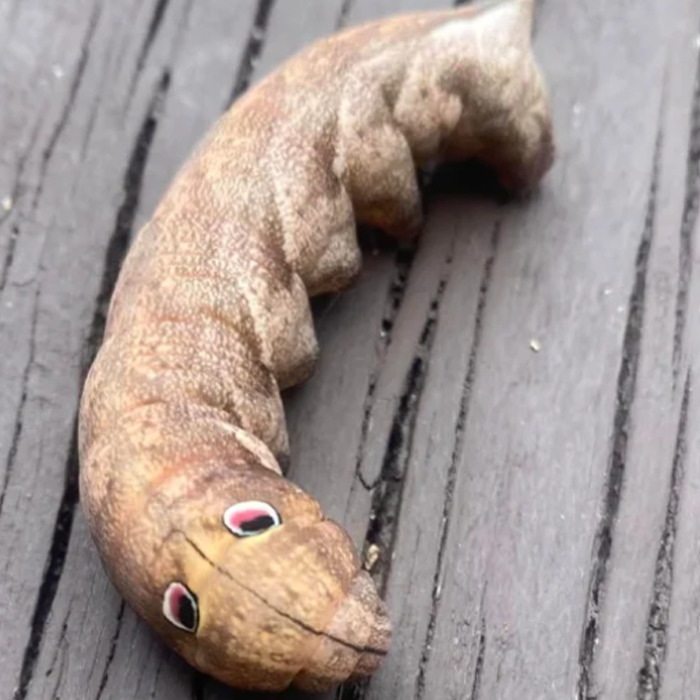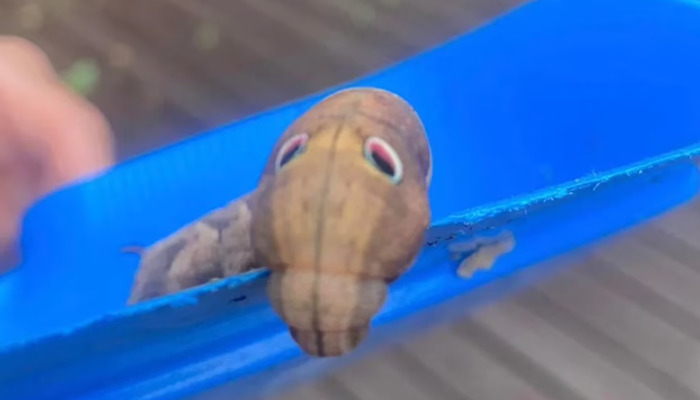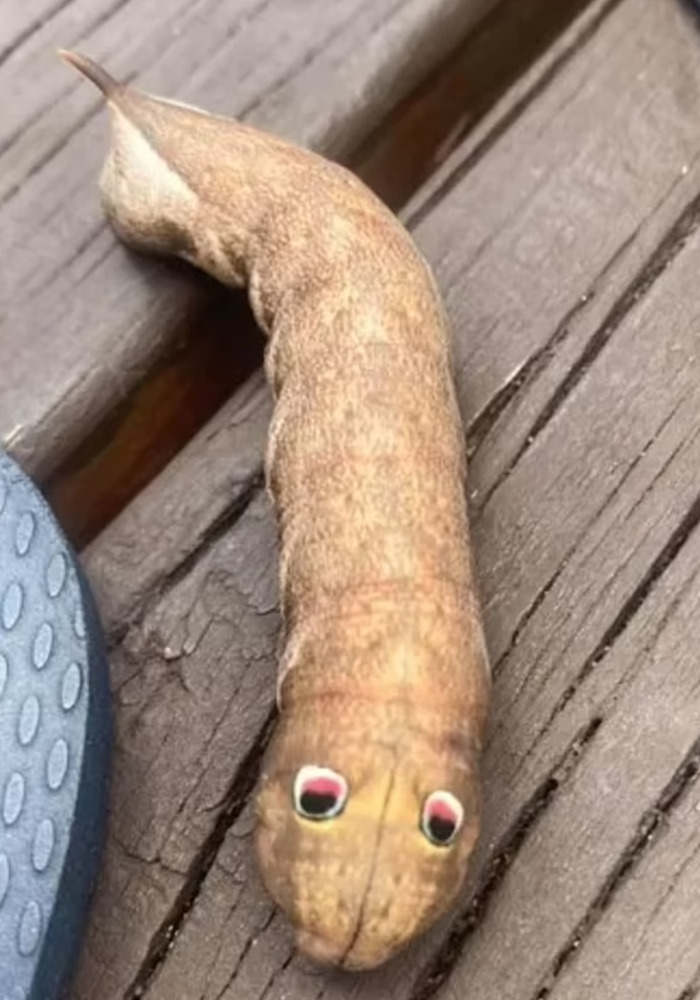An Aussie homeowner baffled by the discovery of a cute yet bizarre creature in her garden captured the attention of the internet. She has now found the answer behind what type of little intruder found itself on her property, highlighting just how amazing nature is and how the oceanic country’s ecosystem is impressively diverse.
Despite those living Down Under being used to the array of species found on their continent, one Australian woman’s discovery in her garden still managed to completely baffle other fellow Aussies.
The homeowner reportedly made the discovery at her property in Sydney’s inner-west. The cylindrical-shaped object was spotted nesting in her garden’s hedge, Yahoo News Australia reported.
The woman, who has remained unnamed in the media, took to a Facebook group to share photos of the curious creature that looked like a brown-colored slug-like critter with large, colored cartoon-like “eyes” — something she, and many others, say they’ve never seen before.
She wrote in the local community social media group: “Does anyone know what this strange little creature is?”
According to the experts, they’re “quite common” but rarely ever seen, Yahoo reported.
An Australian woman baffled the internet after posting a picture of a curious creature she discovered in her backyard

Image credits: unknown
A neighbor replied to the woman’s initial Facebook post: “I seriously thought you stuck googly eyes on a weirdly shaped stocking.”
Another person commented: “That is the cutest thing I have ever seen.”
Some attempted to identify the living entity as “some type of hawk moth caterpillar,” which Andrew Mitchell, an entomologist at the Australian Museum, confirmed to Yahoo News Australia.
Specifically, the Pale Brown hawk moth, or Theretra latreillii, is in its larval stage.
Andrew explained: “It is most often found on vines, including grape vines, and they are quite common, especially around this time of year — late summer to early autumn.
“This species has quite a wide distribution, from the Kimberley region (in WA) eastwards along the coastal strip all the way to Cape York (in Queensland) and then south to Sydney.”
Turns out, it was some type of caterpillar: a Pale Brown Hawkmoth, or Theretra latreillii, in its larval stage

Image credits: unknown
Darrell Kemp, a natural science professor from Macquarie University in Australia told Yahoo: “This specimen is interesting in the sense that most of the body is almost certainly cryptically colored.”
This means that the cute little being was camouflaged, a defense tactic that organisms use to disguise their appearance, usually to blend in with their surroundings so we “rarely see them.”
Darrel explained: “You can see the diagonal marks along the side, which represent what we would call ‘disruptive coloration.’
“This is a key feature of crypsis designed to interfere with the perception of predatory viewers by disrupting the outline of the animal.”
According to the natural science expert, in conjunction with the generally mottled brown appearance, this individual would be “extremely difficult to detect among twigs, stems, and dead foliage,” so it’s pretty impressive the Sydney woman was able to spot it.
The colorful eyes, or at least the appearance of eyes, are also thought to be a protective feature or a deterrent for predators.
The colorful eyes, or at least the appearance of eyes, are thought to be a protective feature or a deterrent for predators

Image credits: unknown
Darrel said: “The eyespots are most likely used as a startling effect, again designed to deter predators by giving the appearance of a larger (potentially dangerous) animal.
“They could be used in conjunction with a rapid display behavior that the larva does when threatened – a so-called deimatic display.”
Deimatic behavior or startle display means any pattern of bluffing behavior in an animal that lacks strong defenses.
Explaining their protective behavior, Entomologist Andrew said the species resembles a miniature snake.
He explained: “When threatened, they puff up the front of their body, raise it into the air, suck the head in a bit, and can look quite convincingly like a snake when viewed front on — some species even hiss and strike at you.
“But they’re completely harmless, of course”
The cute caterpillar’s pictures continued to stir different reactions on social media












